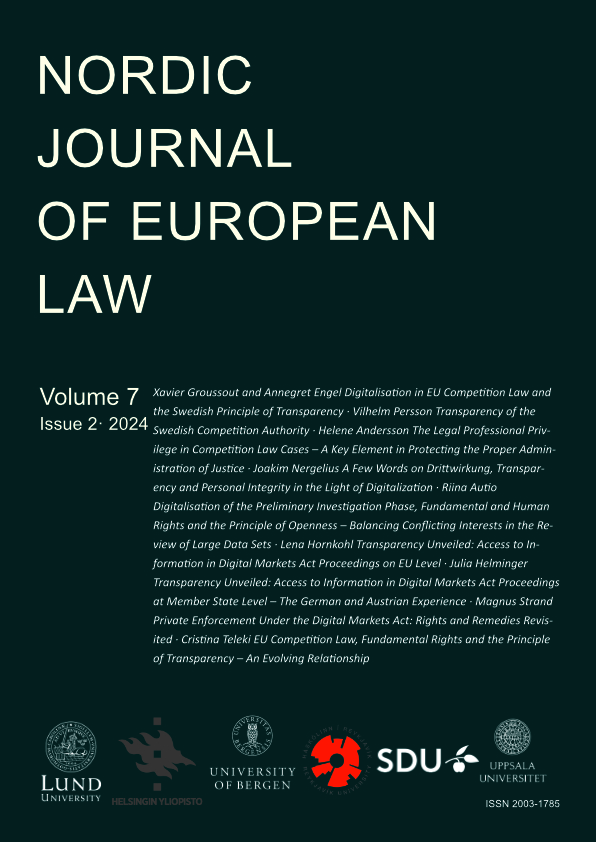Digitalisation of the Preliminary Investigation Phase, Fundamental and Human Rights and the Principle of Openness - Balancing Conflicting Interests in the Review of Large Data Sets
Main Article Content
Abstract
The EU courts have divided an investigation into two distinct stages with different aims: the preliminary investigation phase and the contradictory phase. This paper examines issues related to the digitalisation of the preliminary investigation phase, from screening and open source intelligence to data processing during unannounced inspections or dawn raids. The question is how rights of defence are secured without jeopardising an investigation where data sets have grown beyond anything previously known. Within the context of the principle of openness of government activities in Finland and Sweden, the author sets out to find how the main rule of openness is balanced with the objectives of the preliminary investigation phase. The article examines case-law and literature, complemented with public statements from competition authorities, to find that a fair balance between conflicting interests has been achieved thus far. Examples of open questions currently subject to debate do, nonetheless, range from using personal apps for detection to whether national identity as per Article 4(2) of the Treaty on European Union can tip the balance between confidentiality of correspondence and cartel enforcement categorically in favour of the former. The Court of Justice will likely have to address the issue of national identity in the ongoing Ronos case.
Article Details

This work is licensed under a Creative Commons Attribution-NonCommercial-NoDerivatives 4.0 International License.

